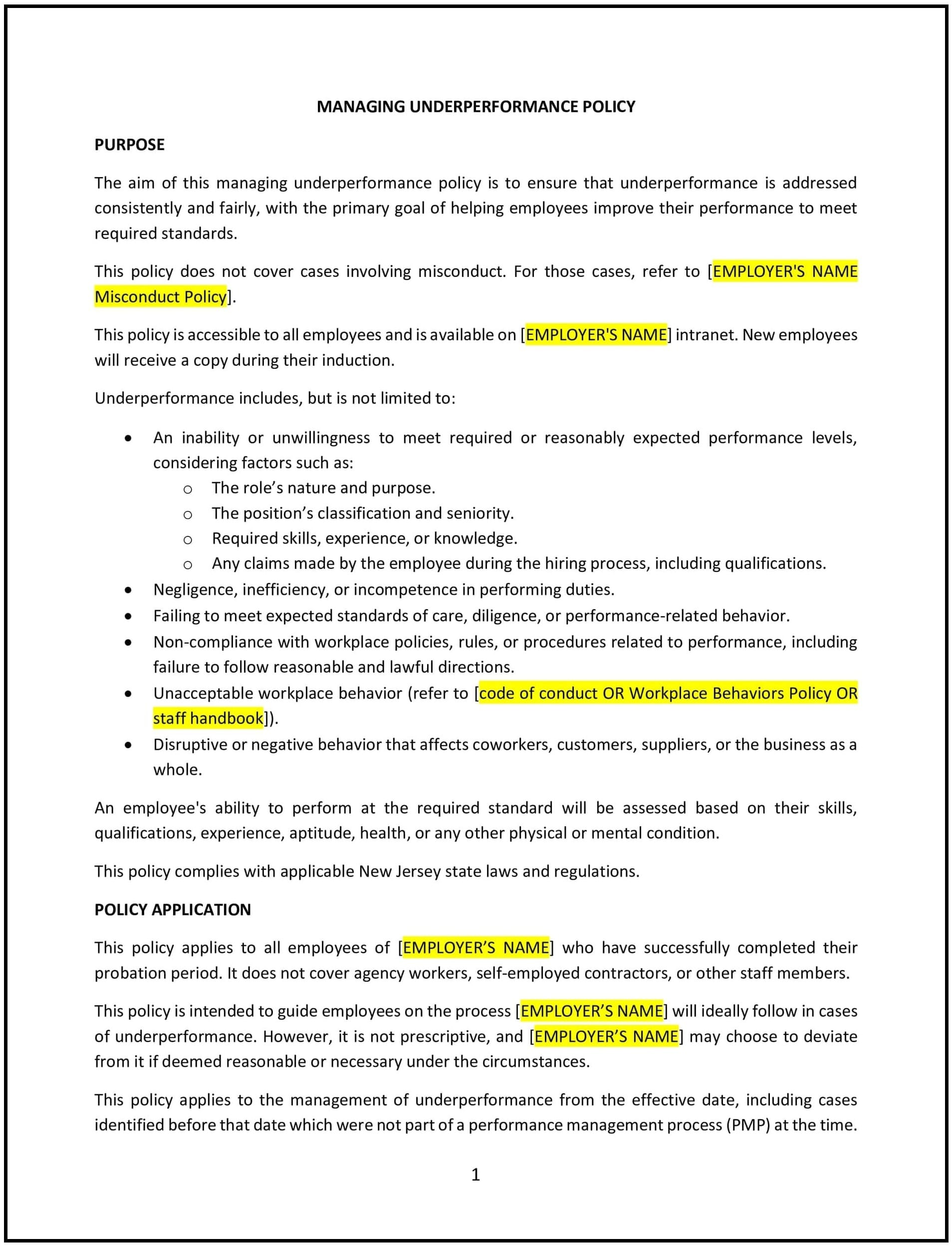Managing underperformance policy (New Jersey): Free template
Got contracts to review? While you're here for policies, let Cobrief make contract review effortless—start your free review now.

Customize this template for free
Managing underperformance policy (New Jersey)
A managing underperformance policy helps New Jersey businesses establish a structured approach for addressing employee performance issues. This policy outlines expectations for job performance, feedback procedures, performance improvement plans (PIPs), and potential disciplinary actions. It also sets guidelines for providing support, setting measurable goals, and ensuring fairness in performance evaluations.
By adopting this policy, businesses in New Jersey can promote accountability, improve employee performance, and provide clear steps for addressing workplace underperformance.
How to use this managing underperformance policy (New Jersey)
- Define performance expectations: Clearly outline job responsibilities, performance standards, and key performance indicators (KPIs) for each role.
- Identify underperformance indicators: Specify behaviors or work outcomes that may indicate performance concerns, such as missed deadlines, low productivity, or poor teamwork.
- Provide regular feedback: Encourage managers to conduct ongoing performance discussions and document any concerns.
- Implement performance improvement plans (PIPs): Outline a structured approach for employees to improve their performance within a specified timeframe.
- Offer support and training: Provide resources such as coaching, mentorship, or skills development programs to help employees succeed.
- Set clear timelines for improvement: Define how long employees have to meet performance expectations and what benchmarks they must achieve.
- Address continued underperformance: Establish procedures for escalating concerns if an employee does not meet improvement goals, including potential disciplinary actions.
- Review and update: Regularly assess the policy to align with evolving business needs, industry best practices, and employee feedback.
Benefits of using this managing underperformance policy (New Jersey)
This policy provides several benefits for New Jersey businesses:
- Promotes a performance-driven culture: Encourages employees to meet clearly defined expectations.
- Supports employee development: Provides structured guidance to help employees improve their skills.
- Reduces turnover: Gives employees an opportunity to correct performance issues before termination.
- Ensures fairness: Establishes a transparent and consistent process for addressing underperformance.
- Strengthens workplace productivity: Helps businesses identify and resolve performance challenges effectively.
Tips for using this managing underperformance policy (New Jersey)
- Communicate the policy clearly: Ensure employees understand performance expectations and available support options.
- Train managers on constructive feedback: Provide coaching on how to deliver performance discussions effectively.
- Document performance concerns: Keep records of feedback, PIPs, and any disciplinary actions taken.
- Encourage employee engagement: Foster open conversations about performance challenges and potential solutions.
- Review the policy regularly: Update the policy to reflect evolving workplace expectations and New Jersey employment practices.